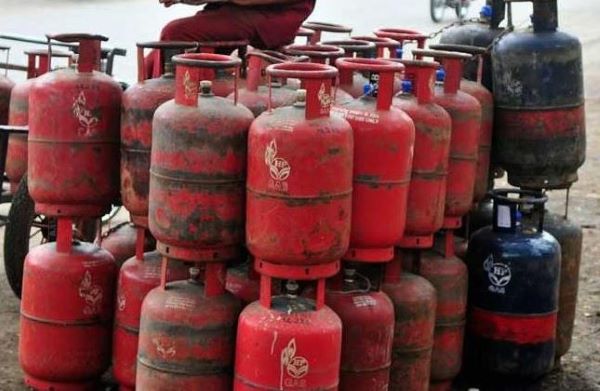
The LPG Marketing Companies Association of Ghana (LPGMC) has raised very grave concerns about the planned implementation of the Cylinder Recirculation Model (CRM) come September this year, saying it threatens to kick a lot of their members out of business, leave others with heavy debts and even shortchange 25% of consumers.
Their concerns are contained in a letter dated July 17, 2023, signed by the chairmen of LPGMC – Malam Bukari Amadu, Ghana Truck Drivers Association (GTDA) – Shafui Mohammed and Ghana LPG Operators Association (GLIPGOA) – Ralph Bedi intercepted by Techfocus24.
This comes after the National Petroleum Authority (NPA) wrote a letter to members of the industry associations, informing them of the planned nationwide implementation of the CRM, beginning with the first phase in the Greater-Accra and Ashanti regions this September.
The NPA said the program will subsequently be extended to other parts of the country in phases.
It also informed the LPG marketers that prior to the September rollout, it will do an assessment of all the current LPG distribution outlets in the country and classify them into low, medium and high risk, based on carefully crafted safety and health criteria, adding that those classified as low and medium risk will be limited to selling gas to only vehicles that use LPG as fuel (Autogas), and those classified as high risk will be allowed to sell already filled cylinders to domestic users.
The already filled cylinders will be filled at designated Bottling Stations and be conveyed to the outlets for sale, unlike the current situation where tanker trucks deliver LPG to the retail outlets and they fill cylinders directly for consumers with their LPG pumps.
Grave concerns
But the LPG Marketers insist that, in its current form, the CRM threatens to do more harm to most industry players than good, adding that a lot of them are very likely to lose their businesses based on the classifications alone.
They explained that each LPG marketer has duly been licensed by the NPA and other regulatory bodies way back from the 1990s, and have all been duly confirmed as SAFE in all material details to operate.
According to them, it was on the basis of the confirmation to operate that the banks and creditors advanced loans to them to invest in their businesses, so a reclassification, in the form the CRM proposes, will make it difficult for over 780 LPG retail outlets to make money and pay back their loans.
600 Trucks going waste
They also noted that the current classification is what led them to purchase expensive tanker trucks for their work, so if NPA eliminates the work of the tanker trucks, that will render over 600 truck tanks completely useless and leave the owners with heavy debts to creditors.
“Additionally all LPG outlets across the country will lose at least 50% to 60% of sales volumes if the policy is implemented by the NPA in its current form. This will render industry players incapable of honouring our financial obligations to the banks and other creditors,” it said.
The LPG industry operators also described the policy as unfair, saying that the September 2023 implementation date would require them to secure new trucks within the next six weeks to convey cylinders containing LPG, which is impractical.
Smaller consumers
They also noted that the new policy will not be in the interest of consumers of smaller quantities of LPG who may not have money to buy completely filled cylinders from bottling stations, adding that the smaller quantity buyers constitute 25% of their customer base, and that is a huge number of people to be short-changed by a new policy.
Suggestions
Based on those concerns among others, they are therefore proposing two main amendments to the policy to ensure it serves the interest of all stakeholders.
Firstly, they want all their existing plants, including every piece of equipment, vessels, and the over 600 trucks that will be rendered useless to be valued for the respective owners to be paid the relevant compensations for their loss, as done in all similar situations across the country.
Secondly, they insist that, in case government finds the compensation option as not feasible, the alternative should be a 10-year transition period, during which the proposed CRM and the existing refilling plants will co-exist side-by-side to enable the marketers and other stakeholders recoup their investments, pay off their heavy debts and transition seamlessly into the CRM program.
In that respect, they noted that currently both fossil and electric vehicles have been operating concurrently during the transition period, so it should be possible for that to be applied to the this situation to ensure no stakeholder is unduly short-changed.
The LPG industry stakeholders have copied at least 19 top officials of state institutions, private sector bodies and workers unions. They include the energy minister, the Speaker of Parliament, national security minister, Chairman of the Council of State, Secretary-General of the Trades Union Congress, and the private sector development minister among others.









